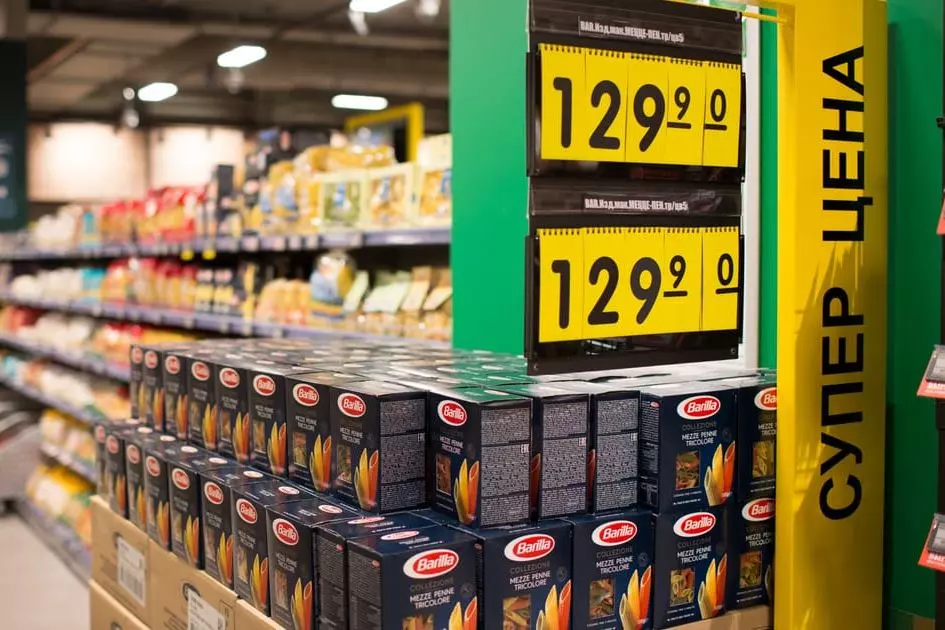The global business community is looking for but fails to find new markets: fleeing Russia has proven difficult.
Although Western companies declared a boycott of Russia after the special military operation was launched in Ukraine, many continue their operation, Financial Times (FT). It was not easy to quit. Businesses are confused and have a hard time adjusting to the new reality.
A European CEO complained that geopolitics had made his life difficult, recently speaking at a Swiss ski resort. He grew up in the golden postwar age during globalization, in a world where one was used to looking at business through the prism of growth and profitability. Now, as the old world is rapidly falling apart, he has to decide who to align with, which is hard to choose.
“No one talked about those things three years ago. So what is happening now is frankly frightening,” he said.
And it is one of the reasons why, a year after the launch of the military operation in Ukraine — despite all the economic sanctions the West imposed, pressure from activists, and no prospects whatsoever for a quick exit from the conflict — Western businesses that have settled in Russia are in no hurry to leave, according to a new study of Western companies’ investments in equity capital. They are reluctant to disengage. For example, during the military conflict, late last year, less than 9% of the 1,404 EU and G7 companies left Russia, St. Gallen University Professor Simon Evenett and International Institute for Management Development Professor Niccolò Pisani told the World Economic Forum (WEF) in Davos. That means a huge number of companies headquartered in the European Union and G7 countries continue to operate and invest in the country as if nothing had happened. This all is despite the harshest sanctions the West imposed on Moscow and endless reports on the departure of several companies from Russia with the start of hostilities in Ukraine.

For the most part, they sold off the least profitable enterprises: and still, some Western sellers inserted buyback clauses into the deals. They might believe the fighting would soon end and life would return to normal.
“The generation of corporate bosses aged 50 to 60 has never faced geopolitical risks before, says Professor Simon Evenett. – This is how strong the psychological and philosophical shock they suffer. They sincerely cannot comprehend the sea change because already live in a “brave new world.”
Of course, it is not easy to leave, even for companies that have promised to do so as they will have fewer buyers and will have to offer a huge discount against the backdrop of local restrictions preventing them from winding down the business. Evenett called it the “Hotel California effect”: since why sell when the Russian authorities prevent money withdrawal from the country?
In addition, some leaders enjoyed juggling moral arguments. They wonder what the worst thing they can do is: continue to pay taxes in Russia as if nothing had happened or leave there assets billions of dollars worth which, in turn, will be applied to financing the war. Competitors usually use this argument against the French bank Societe Generale which, besides selling its stake in Rosbank to a company of Vladimir Potanin, a pro-Kremlin billionaire (subsequently put on the U.S. sanctions list), incurred losses of €3.1 bn.
It seems hard to leave money “on the counter” and say goodbye to the dividends of peace that many naively took for granted.
One of the Russian examples lessons for politicians is that Western business does not keep pace with the times and can easily go against the geopolitical aspirations of state governments. “Russia is a rehearsal for China,” says Professor Evenett.
It was assumed that it would be relatively easy (i.e., affordable) to separate from Russia: its economy was supposed to be relatively small and has never enjoyed a large influx of Western investors due to the well-known risks. The companies may have just decided that they could do it somehow.
Imagine a similar military conflict involving China: quite a likely prospect, according to General Mike Minihan, Commander of the U.S. Air Mobility Command, who predicted that Washington and Beijing could go to war over Taiwan as early as 2025. Simon Evenett noted that China holds approximately $8 of investment for every dollar of foreign direct investment in Russia. So Western CEOs may have to adjust to an era of geopolitical turmoil faster than they would have preferred. “These results call into question the willingness of Western businesses to break off the economies their governments consider to be geopolitical competitors,” the authors of the study said in a statement.
Among those who fled Russia are mostly American companies (almost 18%) followed by European (8.3%) and Japanese (15%).
Yale University named such giants as Ford, Renault, McDonald’s, Ikea, and Shell among dozens of Western companies that have completely ceased operations in Russia.
However, others, such as consumer goods giant Unilever, the American fast food chain Subway, and the Italian pasta manufacturer Barilla, continue their activities in Russia. According to the study, most of the remaining Western companies in Russia are from Germany.
According to Politico, earlier, top officials and business leaders at the summit of the World Economic Forum in Davos promised to strengthen military and economic support for Kyiv. However, the questions of the global business community’s endurance in isolating Moscow and the new markets for energy, metals, and food were raised behind the scenes of the forum.














Comments